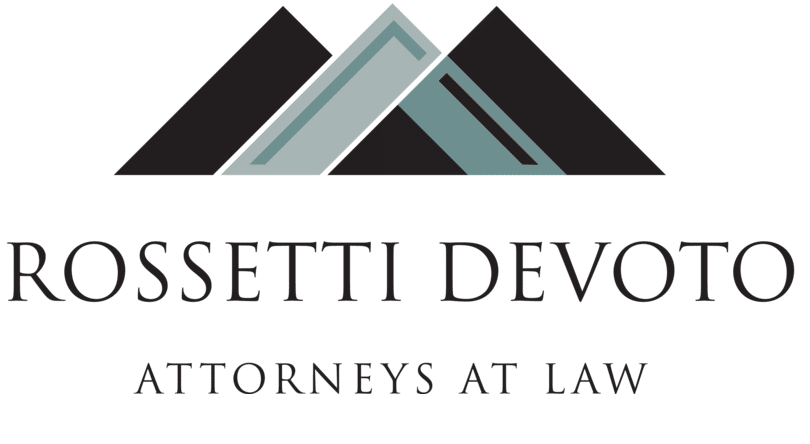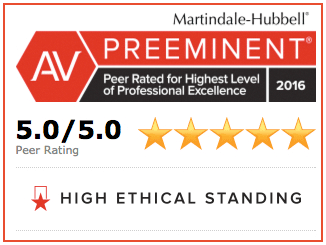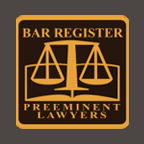Analyzing a Medical Negligence Claim
Read the article about analyzing a medical negligence claim written by Andrew J. Rossetti and John Kirby.
ANALYZING A MEDICAL NEGLIGENCE CLAIM
by
| Andrew J. Rossetti, Esquire Board Certified Civil Trial Attorney Rossetti & DeVoto Cherry Hill, NJ 08002 |
John Kirby, M.D. Board Certified Internist Cooper Physicians 1210 Brace Road Ste 102 Cherry Hill, NJ 08002 356-428-6616 |
Andrew J. Rossetti, Esquire
Board Certified Civil Trial Attorney
Rossetti & DeVoto
Cherry Hill, NJ 08002
John Kirby, M.D.
Board Certified Internist
Cooper Physicians
1210 Brace Road Ste 102
Cherry Hill, NJ 08002
356-428-6616
March 22, 2002
INITIAL PHONE CALL
Damages, Damages, Damages
- Medical malpractice cases are very expensive to pursue. Therefore, the damages must be very large.
- Also, the injury must be serious and cause permanent disability.
- And, let the plaintiff tell their story.
Start the Statute of Limitations Analysis
- Rule of thumb is two years from when the plaintiff first knew or should have known he or she was a victim of malpractice
Tort Claims Notice
- In fact, state-owned hospitals and medical facilities as well as state-employed doctors, nurses and other state employees are all entitled to Notice of your intention to file a lawsuit against them within 90 days of the malpractice.
- So, how do you find out if the defendant is entitled to a tort claim notice? First, send notice regardless. For more information see www.NJINJURYLAW.com
INITIAL MEETING
Gathering information:
- Doctors and hospitals plaintiff has been to for this condition
- Preexisting conditions
- Family history
- Objective tests
- Also, family doctor
- And, medications
- Any unrelated medical conditions
OBTAINING MEDICAL RECORDS
- Firstly, the plaintiff must obtain the first set of medical records on their own.
- N.J. Administrative Code, Section NJAC 8:43G-15.3 requires that legible copies of medical records be produced within thirty days. The Code also states the copying charge is not to exceed $1.00 per page and a maximum of $200.00. So, if you are obtaining the records on behalf of a deceased person, you may need the plaintiff to be appointed as the Executor and/or Administrator of the estate before the records will be released.
- In fact, the lawyer should request records only after the plaintiff has obtained the first set. Therefore, this sets up a potential case for falsification of records.
WHAT IS NOT IN THE RECORDS
I. PATIENT RECORDS
1. Autopsy Records
a. Photographs
b. Tissue specimens
c. Blood urine specimens
2. Pathology Specimens (Cancers, Placenta, Bacteria, etc.)
a. Microscopy slides
b. Paraffin blocks
c. Frozen sections
3. Radiologic films
4. Photographs and films
a. Plastic surgery
b. Risk Management
c. Intra-operative
d. 24 Hour EEG
e. Echocardiogram
f. Sonogram
5. Computer Printouts and Graph Tracings
a. Electronic fetal monitor strips
b. Electroencephalogram
c. Electromyelograms
d. Electrocardiograms
e. Laboratory
6. Logbooks
a. Emergency Department
b. Labor and Delivery
c. Surgery
d. Laboratory
e. Pharmacy/Narcotics
7. Transmittal Forms
a. Billing requests
b. Laboratory requests
c. Radiological requests
8. Ambulance Records
9. Health Insurance Records
10. Itemized Billing Statements
II. STANDARD OF CARE DOCUMENTS – GENERAL
1. Hospital/H.M.O. Articles of Incorporation, By-Laws, Mission Statements
2. Hospital Medical Staff Rules and Policies
3. Hospital Department Policies
4. Nursing Policies
5. Advertisements and Commercials
III. STANDARD OF CARE DOCUMENTS – SPECIFIC
1. Hospital Departmental Procedures and Protocols
2. Hospital Nursing Procedures and Protocols
3. Training Program Procedures and Protocols
a. Authoritative Texts
4. Risk Management Policies
IV. DOCUMENTS REGARDING INDIVIDUAL PHYSICIAN
1. Licensing Boards
2. Specialty Boards
3. Contracts of Employment
4. C.M.E. Records
5. Personnel Files/Payroll Records
V. MISCELLANEOUS
1. Census Reports
2. Medical Equipments Operating Manuals and Maintenance Records
EXPERT CONSULTATION
GOAL
- Rapid and cost-effective case triage
- The MD’s perspective (why a general internist?)
- The broad perspective of a general internist as initial contact person for the paralegal
THE PROCESS
Initial discussion with the legal team about medical negligence claim.
- Firstly, the medical expert educates the legal team concerning the medical facts.
- Do the facts warrant the expense of obtaining records? For example:
- A heart attack by symptoms with abnormal EKG missed by a family practitioner who attributed the findings to a muscular problem.
- A woman with known breast cancer who ignored physician urging to see an oncologist for 3 years, and ultimately had a poor reposed to chemotherapy.
Initial hospital or physician record review.
- Distillation of voluminous medical records into concise, easily understood prose
- Medical abbreviations and jargon eliminated
- Medical issues defined so the legal team can understand all issues involved and decide if they wish to pursue case
Research for Paralegals/Attorneys.
- Library based [translation of complex issues into plain English with provision of diagrams/figures for legal team]
- Internet-based [review of the origin of an obscure bacterium linking its presence in a surgical wound to incomplete sterilization of surgical instruments]
- Review of package inserts for pharmaceuticals [example: failure to use “Clot busting” medications on 80 year old stroke victim who develops right sided paralysis seems on the surface malpractice, but package insert states contraindication to use of these agents in those over 75 years of age]
• Review of radiographs with radiologist and/or pathology slides with pathologist
Identification of Pitfalls of Any Potential Malpractice Action
(The Defense’s Perspective)
- Identification of patient’s contributory negligence (non-compliance with instructions, medications, follow-up)
- Alternative explanation of the facts
- Analysis of strength of data (data obtained by placebo controlled double blinded trials stronger than consensus statements)(Example: “clot busting” medications not used to treat pulmonary embolism (blood clot in lungs) where patient dies. Consensus opinion say use medication but controlled trials say medication makes no difference in mortality)
Proximate Cause
- Most cases are won and lost on this issue
- Determining which health care professional/facility erred and whom to sue; assist legal team in selecting an expert witness
- Must be conversant on Scafidi issues
Getting Ready for Depositions/Trials
- Redefining issues
- Medical language explained in English
- Preparation of lists of questions for depositions or witnesses at trials
- Commentary/critique of defense expert written opinion and pre-trial deposition
PRE-SUIT DISCOVERY IF YOU CAN NOT GET THE RECORDS OR THEY ARE ILLEGIBLE
I. Petitioner must demonstrate extraordinary circumstances.
R. 4:11-1 provides:
(a) Petition.
A person who desires to perpetuate his or her own testimony or that of another person or preserve any evidence or to inspect documents or property or copy documents pursuant to R. 4:18-1 may file a verified petition, seeking an appropriate order, entitled in the petitioner’s name, showing:
1. that the petitioner expects to be a party to an action cognizable in a court of this State but is presently unable to bring it or cause it to be brought;
2. the subject matter of such action and the petitioner’s interest therein;
3. the facts which the petitioner desires to establish by the proposed testimony or evidence and the reasons for desiring to perpetuate or inspect it;
4. the names or a description of the persons the petitioner expects will be opposing parties and their addresses so far as known;
5. the names and addresses of the persons to be examined and the substance of the testimony which the petitioner expects to elicit from each; and
6. the names and addresses of the persons having control or custody of the documents or property to be inspected and a description thereof. The court may also grant a pre-complaint petition for depositions filed pursuant to this rule by a person asserting that due to extraordinary circumstances, which shall be explained in detail by affidavit, such depositions are necessary to enable compliance with N.J.S.A. 2A:53a-27 to 29 (Affidavit of Merit Statute).
Prior to the amendment to R. 4:11-1, the New Jersey Supreme Court addressed pre-suit discovery in Petition of Hall by and through Hall, 147 N.J. 379 (1997).
The facts of Hall were:
Hall was admitted to the emergency room at Burdette Tomlin Memorial Hospital on August 15, 1995 after a surfing accident in which he lacerated the jugular vein on the left side of his neck. During the surgery to repair the laceration, Hall suffered cardiac arrest and was without oxygen for more than ten minutes. Shortly after surgery, Dr. Robert Salasin, Hall’s surgeon, informed members of Hall’s family that he believed the cardiac arrest during surgery was caused by a problem with the endotracheal tube inserted in Hall to facilitate anesthesia.
The court held:
Pending receipt and implementation of the Civil Practice Committee’s recommendations,1 trial courts are authorized in exceptional circumstances to grant petitions for pre-suit discovery in malpractice cases if in their discretion they are persuaded, notwithstanding safeguards contained in the statute, that such relief is essential in order to permit the plaintiff to comply with the provisions of the Affidavit of Merit Statute.
MOST COMMON MALPRACTICE CASES AND MEDICAL NEGLIGENCE CLAIM
- Birth trauma injuries including cerebral palsy, Erb’s palsy, brachial plexus
- Failure to diagnose heart attacks
- Misdiagnosis/delayed diagnosis of cancer
- Nursing home malpractice
- Anesthesia malpractice
- Surgical Malpractice
- Hospital & HMO malpractice
- Failure to timely diagnose infections
- Inadequate emergency room care
- Spinal meningitis
INTERNET LINKS TO RESEARCH TO HELP YOU WITH YOUR MEDICAL NEGLIGENCE CLAIM
American Medical Association www.ama-assn.org
American Cancer Society www.cancer.org
Centers for Disease Control www.cdc.gov
Food & Drug Administration www.fda.gov
National Board of Medical Examiners www.nbme.org
The Mayo Clinic Health Library www.mayo.edu
Medline www.medline.com
New Jersey Board of Medical Examiners: Has your NJ doctor been disciplined? www.state.nj.us/lps/ca/bme/medfrm.htm
Pennsylvania Board of Medical Examiners: Has your PA doctor been disciplined? www.dos.state.pa.us/bpoa/discipline.htm
Medical Specialty Web Sites
www.anatomy.org/ (Anatomy)
www.abanes.org
www.asahq.org/homepage3.html
www.acc.org (Cardiology)
www.augusta.net/atlantic/ascp.ascpscm.html
www.asecho.org
www.caduceus.com.pe/iash/
www.americanheart.org
www.amerchiro.org (Chiropractice)
www.accoweb.com
www.chiromed.org
www.nysca.com
www.aaem.org (Emergency Services)
www.abem.org
www.acep.org (Endocrinology)
www.aace.com
www.women-in-endo.org
www.diabetes.org
www.acg.gi.org (Gastroenterology/Liver)
www.gastro.org
www.asge.org
www.sgna.org
www.liverfoundation.org
www.aafp.com (General Medicine)
www.abms.org
www.ama-assn.org
www.ampat.org
www.aamc.org
www.msweb.net/aaps/
www.nysafp.org
www.nycms.org (Hematology)
www.hematology.org
www.latrogenic.org (Latrogenic Injuires)
www.ashi-hla.org/ (Immunology)
www.aaaai.org/professional/default.stm
http://home.idac.org/idac/idlinks.html (Infectious Disease)
http://pages.prodigy.net/pdeziel/
http://www.cdc.gov/ncidod/id_links.htm
http://www.amm.co.uk
www.acponline.org (Internal Medicine)
www.abim.org
www.sgim.org
www.acog.org (OBGYN)
www.abog.org
http://www.accesspub.com/tempobg/soc/socm.htm
www.acnm.org (Midwifery)
www.stroke.org (Neurology)
http://www.aan.com
http://www.neuroguide.com/
www.asco.org (Oncology)
www.cancernet.nci.nih.gov
www.oncolink.upenn.edu
www.cancer.org
www.eyenet.com (Opthamology)
www.ascrs.org
www.asoprs.org
www.glaucoma-foundation.org/info/
www.aaopt.org (Optometry)
www.aoanet.org
www.aaos.org (Orthopedics)
www.sportsmed.org (
www.aap.org (Pediatrics)
www.aphanet.org (Pharmacy)
www.aaptnet.org (Physical Therapy)
www.apta.org
www.nationalrehab.org
www.faseb.org/aps/ (Physiology)
www.facial-plastic-surgery.org (Plastic Surgery)
www.plasticsurgery.org
www.apma.org (Podiatry)
http://www.footandankle.com/podmed
www.acpm.org (Preventative Medicine)
www.abpn.com (Psychiatry)
www.psych.com
www.lungusa.org (Pulmonary)
http://www.aarc.org/
http://www.chestnet.org/
http://www.thoracic.org
www.asrt.org (Radiology)
www.rsna.org
www.acr.org
www.rheumatology.org (Rheumatology)
www.arthritis.org
www.facs.org (Surgery)
www.acfas.org (Foot and Ankle)
www.fascrs.org
www.womensurgeons.org (Colon/Rectal)
www.auanet.org (Urology)
www.kidney.org
www.svmb.org (Vascular Medicine)
www.abvp.org (Veterinarian Medicine)
www.abvp.com
www.avma.org
Medical Terminology
http://mywebmd.com/encyclopedia
www.index.nlm.nih.gov/index/medindex.html
http://medmatrix.org
http://home.ipoline.com/guoli/med/Ohead.htm
http://home.ipoline.com/guoli/home/in_dict.htm
www.medicinenet.com (then click dictionary)
www.4woman.org/nwhic/references/dictionary.htm
(on line med dictionaries and journals)
http://courses.smsu.edu/jas188f/690/medslpterm.html
Large Listing of Medical Related Sites
http://www.sciencekomm.at/links/medicine.html
TRIAL EXHIBITS GOAL
• Make the case simple and understandable
• Four areas you must cover in your exhibits:
1. Timelines-to follow the important dates
2. The Deviation
3. Causation
4. Damages









